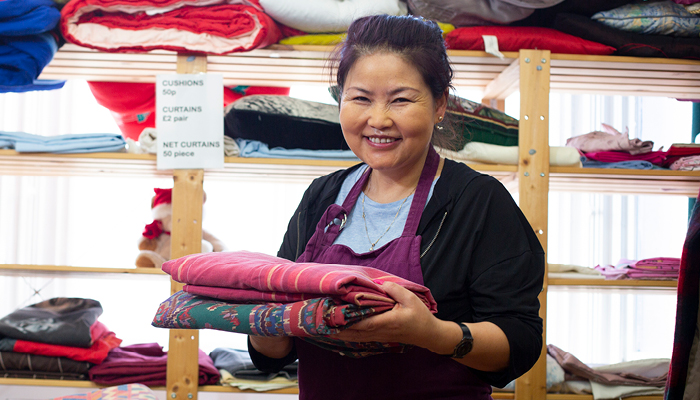Small and local charities can help challenge structural inequalities #IWD2021
08 March 2021
08 March 2021
Both the rise in demand and the difficulties in accessing funding have been particularly challenging for organisations run by and for Black, Asian and Minority Ethnic survivors, with these organisations and communities facing what the charity Imkaan have called ‘dual pandemics.
The theme for this International Women’s Day this year is #ChooseToChallenge, encouraging everyone to call out gender inequalities and bias.
We all have a role to play here. As a Foundation, we will continue to use the insights we hear from charities tackling inequalities across England and Wales to advocate to Government – whether through responding to the Violence Against Women and Girls consultation, influencing the Domestic Abuse Bill, or calling for more support for the charities doing vital frontline work to support women right now.
As individuals, we can all play a role in calling out the inequalities that we see around us every day – whether that’s recognising and dismantling the intersectional barriers faced by disabled, LGBTQIA+ or Black, Asian and Minority Ethnic women, being a more effective ally or championing the work of women who’ve inspired us.
But there’s also an important role that charities can play in #ChooseToChallenge. We know that, through their frontline work in supporting communities during the pandemic, charities are seeing the consequences of structural inequalities first-hand through the effects on the people they work with, and the intersections with the complex social issues they’re tackling. With this unique insight, they can play a hugely valuable role in challenging inequalities at a structural level.

What’s changed?
On International Women’s Day in 2019, I highlighted the importance of small and specialist charities supporting women.
Looking back over the last couple of years, it feels like everything has changed, and at the same time, like nothing has changed at all.
Many of the issues these charities faced two years ago remain the same today.
Charities still need long term, sustainable funding, and the pandemic has only exacerbated this, with funding sources disappearing and fundraising opportunities limited. While some charities were able to access emergency funding, most of this is due to end this month, leaving many facing a cliff edge in April.
At the same time, the challenges facing many women have grown. For example, charities have reported that rates of domestic abuse have soared over the last year, with lockdown restrictions making it more difficult for survivors to access support. Both the rise in demand and the difficulties in accessing funding have been particularly challenging for organisations run by and for Black, Asian and Minority Ethnic survivors, with these organisations and communities facing what the charity Imkaan have called ‘dual pandemics.’
On Tuesday 23 March, we were joined by Baroness Diana Barran and the Value of Small research team to discuss the research findings from the new report. Watch in full.
We know that the pandemic has further entrenched existing inequalities. Yet this is where the strengths of small and specialist charities have also shone through even more brightly.
Our research has shown that the trusting relationships smaller charities hold in communities meant that they were uniquely well-placed to respond to the pandemic.
What sets them apart from the public sector or mutual aid groups is how they were able to support people disproportionately affected by the pandemic such as Black, Asian and Minority Ethnic communities, those in poverty and or with pre-existing health inequalities. They have been a trusted source of information, guidance, and support at a time when this might have been hard to find.
If you’re a small but vital charity, you can use your voice to influence change. Whether that’s picking up the phone to your local MP to tell them about the challenges facing your organisation, adding your voice to a national campaign such as #RightNow, working with the people you support to engage in local election debates or sharing stories on social media. There are many ways in which you can use your voice to challenge the inequalities that you see every day. We have some useful resources to help you get started.
As we move forward from the pandemic, we have a chance to rebuild in a way that works better for everyone and truly challenges inequalities – and charities have a vital role to play here in sharing their insights, experiences and expertise, and speaking up alongside the people they support. Let’s hope that in another year’s time, we can look back and see how we’ve made a difference.